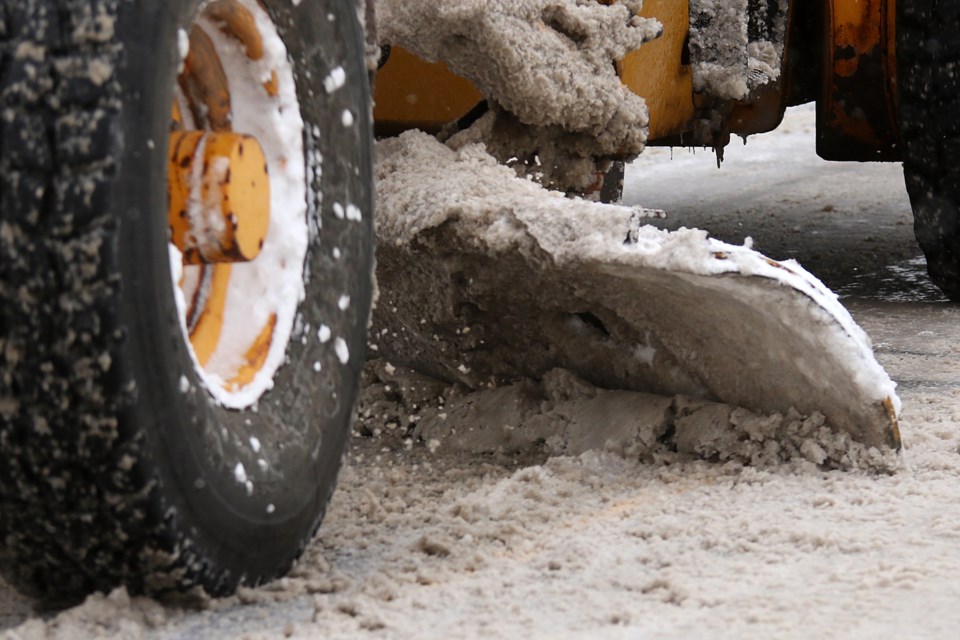NEEBING — Mild temperatures and low snowfall amounts so far this winter are bad news for sledders and skiers, but small municipalities may receive a break on the amounts they have to put out for plowing and sanding local roads.
In Neebing Township, just southwest of Thunder Bay, the number of times public works staffers were called out for winter road maintenance between October and December was cut in half compared to the same period in 2022, township deputy clerk-treasurer Laura Jones said on Wednesday.
Light winters can be lighter on a municipality's pocket book, but when it snows a lot, taxpayers pay the price. In 2022, Neebing spent an extra $30,000 on wages related to snow-clearing, Jones said.
Neebing is responsible for maintaining about 275 kilometres of secondary roads, as well as about 20 bridges, that locals use to get around the sprawling municipality.
Major routes that also pass through Neebing, such as Highway 61, are maintained by the province.
On the other side of Thunder Bay, Shuniah Township chief administrator Paul Greenwood said the snow shortage, if it continues, "will likely see a savings in overtime work during the week, and reduced workload requirements on the weekends."
"Potential savings would come from the utilization of less sand and salt, and associated savings of reduced fuel and vehicle maintenance," Greenwood said.
He added: "It's certainly been an abnormal winter for winter road maintenance thus far."
It's a similar story at O'Connor Township just west of Thunder Bay.
"We have saved some on overtime pay, and have used less sand and salt, but we purchase in bulk for the season, so we don't have a breakdown at this time," said clerk-treasurer Lorna Buob.
Normal winters usually inflate municipal budgets; the City of Thunder Bay, for example, has previously spent more than $5 million on winter-road maintenance. The biggest spender in the country has long been Montreal, where the winter-control tab had been expected to hit $200 million this season, according to CBC reports.
Plowing and sanding of Ontario roads is overseen by the Ministry of Transportation, with the majority of the work being carried out by private companies on contract with the province.
Under ministry guidelines, major routes like Highway 11-17 must be brought back to bare pavement within 12 hours after the end of a storm — four hours sooner than what the standard had been in previous years.
The province has maintained it has been meeting its standards most of the time.
Ontario's NDP has urged the province to apply an eight-hour standard to the entire Trans-Canada Highway network, as is the case with its 400 series highways in southern Ontario. But the Conservative government has so far balked at doing so.
Concerns about winter-road maintenance on provincial routes in the Thunder Bay region can be directed to the following agencies:
• Kakabeka Falls area: Ministry of Transportation, at 1-833-768-0293.
• Thunder Bay East: Emcon Services Inc., at 1-888-636-8704.
• Thunder Bay East: Integrated Maintenance and Operations Services (MOS), at 1-855-680-0861.
The Chronicle Journal / Local Journalism Initiative
